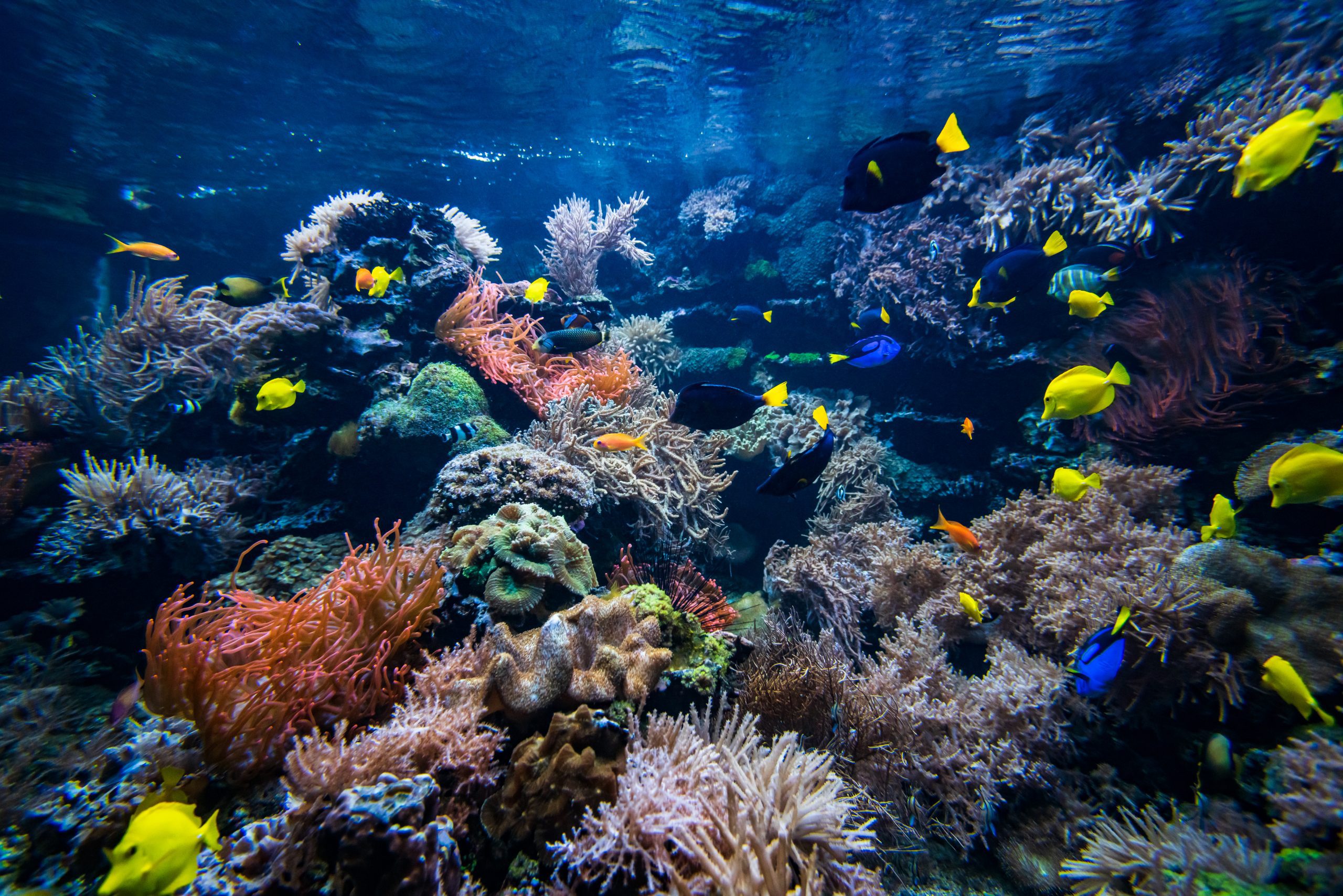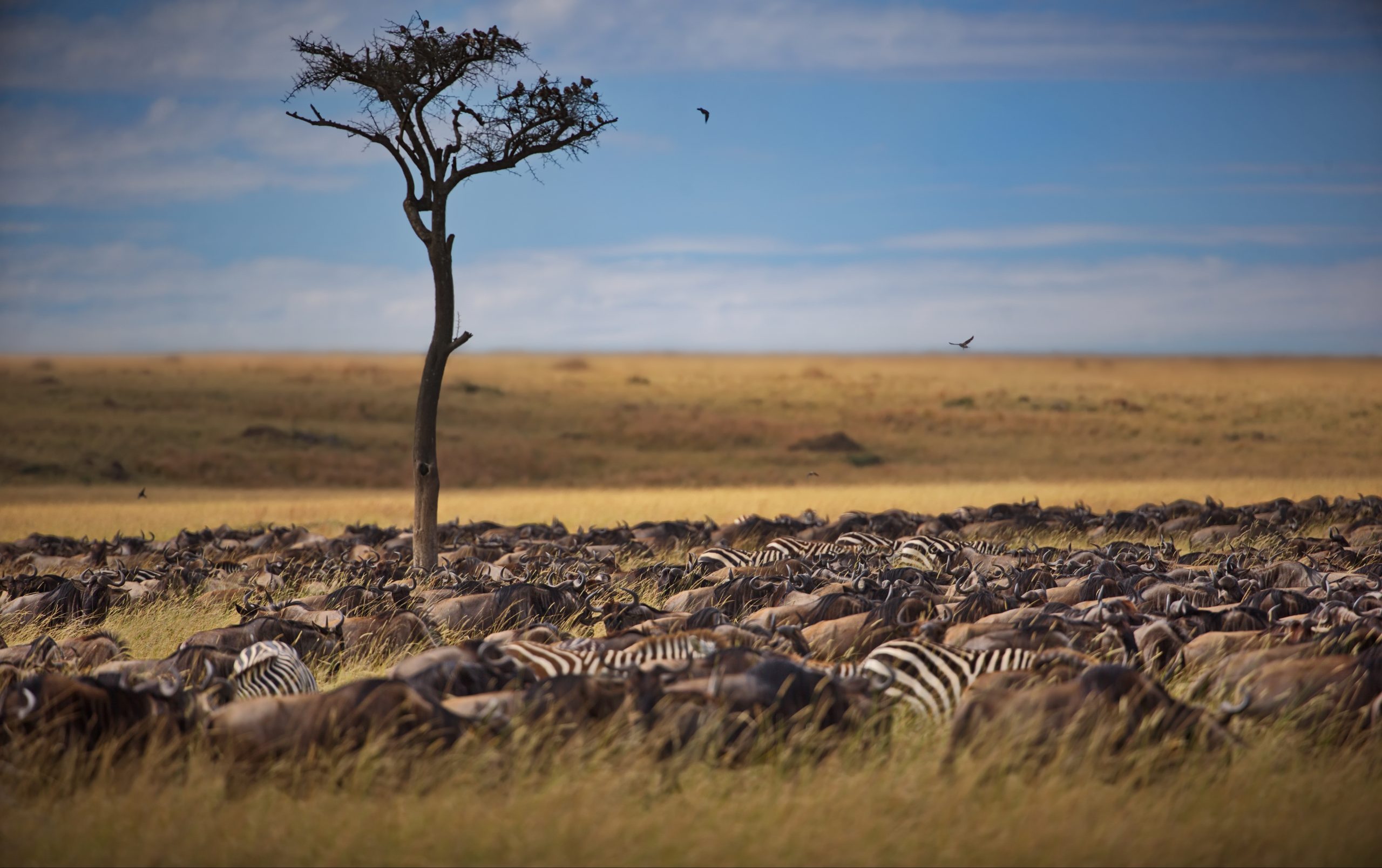Welcome to Open Learning College – Change your career, Increase your salary, and Improve your life.
 Course Overview
Course Overview
Embark on a transformative learning journey with the UK’s most innovative home study provider, offering courses designed to unlock your true potential and facilitate the career change you desire. Access our distance learning courses directly from anywhere, anytime, and acquire industry-recognised Professional Qualifications essential for advancing in your career.
Specifically, explore the flexible and convenient Marine Biology (Level 3) course, an ideal way to gain a diploma qualification. Whether you aim for further education, improved job prospects, or expanded knowledge, this comprehensive course allows you to prepare thoroughly for exams or careers through home study. Plus, it’s structured to be accessible and beneficial even if you have no prior knowledge in Marine Biology.
Marine Biology stands as one of the most captivating fields of study, delving into the intricate ecosystems that exist within the world’s oceans. This course offers a profound exploration into the diverse organisms inhabiting the sea, providing a comprehensive understanding of the dynamic interactions shaping marine life. The ten meticulously crafted modules serve as a portal to the wonders of oceanography and marine biology, offering a rich tapestry of knowledge for enthusiasts and aspiring scientists alike.
At its core, Marine Biology is a journey through time, unravelling the origins of life in the sea and tracing its evolutionary trajectory over millions of years. By examining the birth and demise of oceans, learners gain insights into the geological forces that have shaped marine environments and fostered the proliferation of life forms. Through detailed exploration, students uncover the fascinating adaptations that marine organisms have developed to thrive in the extreme conditions of their habitat.
Moreover, this course ventures beyond mere observation, delving into the ecological intricacies of ocean habitats spanning from the polar regions to the equator. From the sun-drenched surface waters teeming with vibrant life to the abyssal depths cloaked in eternal darkness, each module offers a glimpse into the unique challenges and opportunities presented by different marine ecosystems. Through vivid illustrations and in-depth analysis, learners gain an appreciation for the remarkable diversity of life beneath the waves.
Crucially, the course also addresses the pressing issue of human impact on marine ecosystems. As humanity’s footprint extends ever deeper into the oceans, understanding the consequences of our actions is paramount. By examining topics such as overfishing, pollution, and climate change, students gain a holistic perspective on the complex relationship between human society and the marine environment. Armed with this knowledge, they are empowered to become stewards of the sea, advocating for sustainable practices and conservation efforts to safeguard marine biodiversity for future generations.
In essence, Marine Biology transcends the boundaries of traditional scientific disciplines, offering a multidimensional exploration of life in the sea. By immersing themselves in this course, students embark on a transformative journey of discovery, unlocking the mysteries of the ocean and gaining a deeper appreciation for the intricate web of life that sustains our planet.
 Course Key Topics
Course Key Topics
the Marine Biology (Level 3) course is divided into 10 modules.
Module 1: Ocean Formation
The Oceans cover over 70% of the world’s surface and contains an array of rich life, adapting to its range of climate and weather systems. The ocean has a range of habitats, and it is believed there is still much to discover about its content. This module sets the scene by looking at how the oceans are created and destroyed by sea floor spreading and plate tectonics. Continental drift and the configuration of the oceans and continents through geological history is discussed with a speculative look into the possible future configurations should the continents continue to move as predicted. The major oceans of the present day with their geological features are studied, and the path of an ocean as it progresses from birth to death is followed.
Module 2: The Ocean as a Habitat
The oceans are constantly changing in terms of the way they form and are structured, and also their internal environment being affected by external factors. Some basic oceanography and the structure of the physical ocean from the continental shelf to the abyssal plain is studied, and we then descend into the deep ocean trenches. There are two distinct environments, the actual sea floor and the surrounding sea waters. The chemistry of seawater and how it gets its physical properties as well as the physics of light and sound propagation in the ocean is explored. The dynamics of tides and major currents and the large scale movements of seawater in the ocean basins is looked at. How waves are formed, and how temperature, density and salinity work together in the marine environment is discovered.
Module 3: Biological Evolution in the Oceans
Fossils have been found that are about 3.8 billion years old, not that much younger than when Earth and the Solar Systems were thought to form about 4 billion years ago. Until 1961 it was thought that life formed on Earth by arriving as particles from other planets, until a ferocious debate arose when scientists were able to re-create simple molecular life forms in the laboratory from a rich soup of chemicals that are readily found in the seas today. In module three, we look at how life evolved in the ocean and uncover the fascinating hydrothermal vents which were discovered in the 1970s. The peculiar animals that live in these habitats and how they are able to live in such extreme environments is explored. The evolution of animals in the ocean from the tiniest one-celled animal to the largest marine mammals is discussed and the mass extinctions and radiations that have punctuated the geological history of life on Earth is shown, ending in what we continue to discover today.
Module 4: Food Webs in the Sea
As on land, the life in the sea is maintained by a primary food producer, the phytoplankton, which is able to harness energy to makes it own food. We discover the secret unseen world of the microscopic marine phytoplankton and zooplankton and discuss the primary productivity and the trophic food webs which support all life in the sea. The incredible migration patterns of tiny zooplankton and how other marine animals exploit them is explored. How some of the smallest animals in the sea support some of the largest such as the great whales is discussed. Finally we look at the global distribution patterns of the tiniest organisms in the sea since they impact upon and influence the survival of all the organisms in the food chains and food web in which they form the base, yet crucial level.
Module 5: Adaptations to Life in the Sea
In this module, how diverse life adapted to the harsh marine environment by forming a cyclic relationship is explored. The way animals from the smallest single-celled organisms to fish and the largest whale are able to live in the ocean, whilst others moved to the land is discussed. Biological systems such as osmoregulation, thermoregulation, locomotion, respiration, reproduction, sensory systems, diet and foraging strategies are investigated. The variety of the life in the oceans (and the land), its survival, how it is named and its evolutionary path is discovered. As a case study, the extraordinary evolutionary adaptation of the whales and dolphins as they evolved from being land animals, 50 million years ago to the fully adapted marine creatures seen today is studied.
Module 6: Tropical Environments
The tropical seas are generally considered to be much less productive, so the organisms found here are much more rigorous in the amount of primary productivity, between 30-250 times that of the open oceans. The specific conditions of the tropical oceans are explored. The beautiful coral reefs and mangrove swamps of the tropics are studied in terms of coral anatomy, growth, adaptation and their global distribution and ecology. The geological aspects of coral reef formation and how the simple coral animals evolved throughout their geological history is explored. The delicate symbiotic relationship between the tiny reef organisms and their coral hosts is assessed, and the marvellous array of coral reef fishes and their ecology is discovered and explored.
Module 7: Polar Environments
The physical environment of the polar regions appear similar, and yet there are fundamental geological differences in the Arctic and Antarctic. The Arctic is a sea surrounded by land, and the Antarctic is a continent surrounded by sea, so they contain very different organisms. The ecology of polar environments and the different species found in the Arctic and Antarctic is studied, along with the extraordinary evolutionary adaptations of the life in such extreme environments. Animals such as the fish with antifreeze in their blood form specific case studies that and the way that warm blooded animals have adapted and are able to survive in such extreme cold, will be studied.
Module 8: The Intertidal
The intertidal area or the littoral zone is the small area in the ocean affected by the rise and fall of the tides. The physical environment such as how long the waters are exposed to air, their depth and height, and the animals of rocky shores, sandy beaches and muddy estuaries affected by these changes are looked at. They are very different environments affected by the tides, yet are all at the mercy of the daily and seasonal tides. Thus, the animals have amazing adaptation such as desiccating intertidal environments and physical and biological factors for zonation of animals and plants on the shoreline. As a case study, the biology of a rock pool and the array of fascinating animals that are found there are explored.
Module 9: Beneath the Tides
It is said that scientists know more about what is found on the moon than in the deepest waters of the ocean. The abyssal areas of the deep ocean reveal new organisms in every deep scientific exploratory sea dive. The deep waters are dark, have high pressure, are cold, often have extreme conditions and appear void of life, yet show a remarkable diversity and richness of organisms, adapted for this environment. The energy transfer, food web and the surprisingly abundant animals of the deep sea are studied. The strange looking deep-sea fishes and invertebrates that are adapted to such incredible pressures exerted by the water column in this harsh environment and the animals, which create their own light: bioluminescence is investigated. The study of the ecology of a kelp forests in Alaska with its vitally important keystone species provides an in-depth study in this area of the oceans.
Module 10: The Human Impact on the Sea
Humans have done enormous damage to the oceans with over-fishing, oils spills and even testing Nuclear weapons upon our precious waters. The oceans have been discovered not to have unlimited food as was once thought, especially in line with the exponential rise in world population. It cannot continue to meet demands in the way we are exploiting it today. This final module looks at fisheries, the impacts of over-fishing and the main food species we obtain from the sea. The ocean pollution such as toxic pollutants, sewage and marine debris which are degrading the ocean are discussed, and how the animals of the sea are coping with it all. The history and damage of oil spills and their aftermath, and whether our well-intended clean-up operations do any good are discussed. The impact on global warming and its implications for life in the sea by looking at the geological history of climate change over millions of years and comparing it with the predictions of some of the climate models for the future is explored, and ends this course.
(Please click on the curriculum tab above to see a detailed view of each module)
Course Content
Marine Biology (Level 3) – FREE Starter Pack
How to…. (a series of explainer videos)
Module 1 – Ocean Formation
Module 2 – The Ocean as a Habitat
Module 3 – Biological Evolution in the Oceans
Module 4 – Food Webs in the Sea
Module 5 – Adaptations to Life in the Sea
Module 6 – Tropical Environments
Module 7 – Polar Environments
Module 8 – The Intertidal
Module 9 – Beneath the Tides
Module 10 – The Human Impact on the Sea
Course Resources
Final Exam
College Announcements
🔍 Dive into the Wonders of Marine Biology with £50 OFF the Marine Biology (Level 3) Course! 🌊🐠
Ready to explore the depths of marine science?
For a limited time, we're thrilled to offer you an exclusive discount of £50 off our Marine Biology (Level 3) Course!
Use code MARINE50 at checkout before the offer expires!
🌟 Why Choose Our Marine Biology Course
The Marine Biology (Level 3) Course, presented by Open Learning College, is your passport to the mesmerizing world of oceanic wonders. With 10 captivating modules, this course covers everything from ocean formation to human impacts on marine ecosystems.
💡 What Sets Our Course Apart
Comprehensive Coverage: Explore diverse topics including ocean habitats, biological evolution, food webs, adaptations, and human impacts.
Expert Guidance: Receive support from experienced tutors who are passionate about marine science.
Flexible Learning: Study at your own pace, with 24/7 access to course materials.
Don't miss this chance to immerse yourself in the enchanting realm of marine biology at a discounted rate! Enrol now, use code MARINE50* at checkout, and embark on your journey to becoming a marine science enthusiast. 🦑📖
*Discount code cannot be combined with other offers.









 Get Social!
Get Social!











Daniel Nguyen.